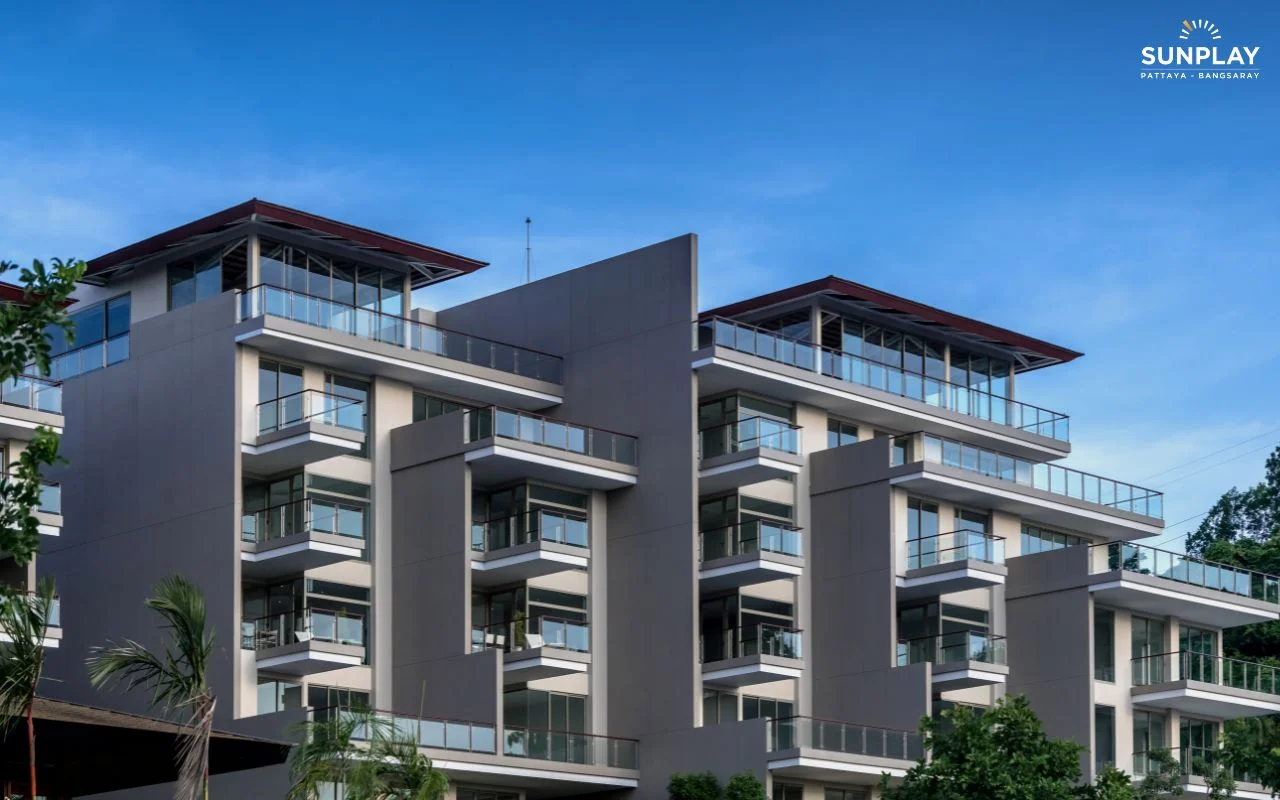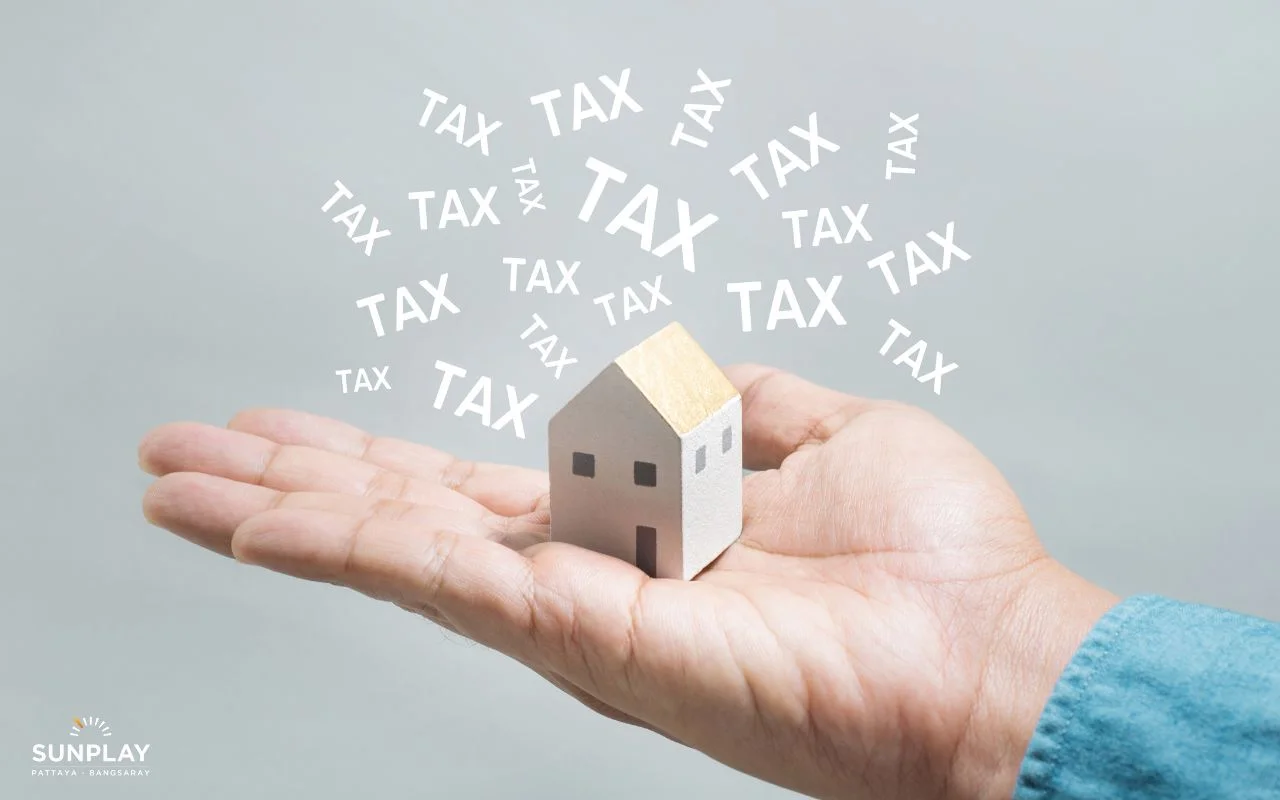The Ultimate Checklist for Buying Property in Thailand: Tips, Tricks, and Pitfalls to Avoid

Thailand is a popular destination for expats who want to enjoy a tropical climate, a rich culture, a low cost of living, and a high quality of life. Whether you are looking for a vacation home, a retirement haven, or a permanent residence, buying property in Thailand can be a rewarding and profitable investment.
However, buying property in Thailand as a foreigner can also be a challenging and complex process, as there are many legal and practical issues to consider. In this guide, we will provide you with the essential information and tips you need to know before buying property in Thailand, such as:
- What types of property can foreigners buy in Thailand?
- How to find and choose a property in Thailand?
- How to finance and pay for a property in Thailand?
- What are the taxes and fees involved in buying property in Thailand?
- How to rent out or sell a property in Thailand?

By following this guide, you will be able to make an informed and confident decision when buying property in Thailand and avoid any potential pitfalls and problems along the way.
What types of property can foreigners buy in Thailand?
The first thing you need to know before buying property in Thailand is what types of property you can legally own as a foreigner. In general, foreigners are not allowed to own land in Thailand, unless they meet certain criteria, such as investing a minimum amount of money in the country or obtaining permission from the government.
However, there are some exceptions and alternatives that allow foreigners to buy property in Thailand, such as:

- Condominiums: Foreigners can buy and own condominium units in Thailand if the total foreign ownership in the building does not exceed 49%. Condominiums are the most popular and convenient type of property for foreigners in Thailand, as they offer security, facilities, management, and maintenance services. Condominiums are also easy to buy and sell, as they are registered under a title deed that proves the ownership of the unit.
- Leasehold properties: Foreigners can lease land or houses in Thailand for a maximum period of 30 years, with a possible extension of another 30 years. Leasehold properties are a viable option for foreigners who want to live in a house or a villa, without owning the land. However, leasehold properties have some drawbacks, such as the uncertainty of the lease renewal, the lack of control over the property, and the depreciation of the value over time.
- Thai company properties: Foreigners can set up a Thai limited company to buy and own land or houses in Thailand if most of the shares and directors are held by Thai nationals. Thai company properties are a common way for foreigners to circumvent the land ownership restrictions, and to have more control and flexibility over the property. However, Thai company properties have some risks, such as the legal complexity, the tax liability, and the possibility of being investigated by the authorities.
How to find and choose a property in Thailand?
The second thing you need to know, finding and choosing a property in Thailand can be a daunting and time-consuming task, as there are many factors and options to consider. Here are some tips and steps to help you find and choose a property in Thailand:

- Do your research: Before you start looking for a property in Thailand, you should do your research on the market, the location, the type, and the price of the property you want. You can use online platforms to browse and compare different properties in Thailand, and to get an idea of the average prices and the availability of the properties. You can also use online forums to get insights and advice from other expats and locals who have experience in buying property in Thailand.
- Hire a professional: Once you have a clear idea of what kind of property you want and where you want it, you should hire a professional to help you find and choose a property in Thailand. A professional can be a real estate agent, a lawyer, or a consultant, who can provide you with valuable information, guidance, and assistance throughout the process. A professional can help you find and choose a property that suits your needs and budget, negotiate the best deal, handle the legal and financial aspects, and avoid any scams or pitfalls.
- Inspect the property: Before you make an offer or sign a contract, you should inspect the property in person, and make sure that it meets your expectations and standards. You should check the condition, the quality, the size, and the features of the property, and look for any defects, damages, or issues that may affect the value or the usability of the property.
How to finance and pay for a property in Thailand?
The third thing you need to know is how to finance and pay for a property in Thailand. Financing and paying for a property in Thailand can be a challenging and costly process, as there are many legal and practical issues to consider. Here are some tips and steps to help you finance and pay for a property in Thailand:

- Save up or borrow money: The most common and straightforward way to finance and pay for a property in Thailand is to save up or borrow money from your home country, and then transfer the money to Thailand. However, this method can also be expensive and risky, as you may have to pay high fees, taxes, and exchange rates, and deal with complex regulations and procedures. To save money and hassle, you should use a specialist money transfer service to transfer money from your home country to Thailand. These services can offer you a better exchange rate, lower fees, faster speed, and more security than traditional banks or other providers.
- Get a mortgage: Another way to finance and pay for a property in Thailand is to get a mortgage from a bank or a lender in Thailand or in your home country. However, this method can also be difficult and limited, as not many banks or lenders offer mortgages to foreigners in Thailand, and those that do may have strict criteria, high interest rates, and short repayment terms. To get a mortgage in Thailand, you may need to have a work permit, a residence permit, a Thai spouse, or a Thai company, and provide proof of income, assets, and credit history. To get a mortgage in your home country, you may need to have a high income, a good credit score, and a substantial deposit, and provide proof of the property and the seller in Thailand.

- Use a developer financing scheme: A third way to finance and pay for a property in Thailand is to use a developer financing scheme, which is a payment plan offered by the property developer to the buyer. This can be a convenient and flexible way to finance and pay for a property in Thailand, as you can pay in installments over a period, without having to deal with banks or lenders. However, this method can also be expensive and risky, as you may have to pay high interest rates, fees, and penalties, and face the possibility of losing your property if you default on your payments.
What are the taxes and fees involved in buying property in Thailand?
The fourth thing, what taxes and fees are involved in buying property in Thailand. Buying property in Thailand can involve various taxes and fees, depending on the type, value, and location of the property, as well as the status and nationality of the buyer and the seller. Here are some of the common taxes and fees that you may have to pay when buying property in Thailand:

- Transfer fee: A transfer fee is a fee that is paid to the Land Department when transferring the ownership of the property from the seller to the buyer. The transfer fee is usually 2% of the appraised value of the property, which is determined by the government. The transfer fee is usually shared equally between the buyer and the seller, unless otherwise agreed.
- Stamp duty: A stamp duty is a tax that is paid to the Revenue Department when transferring the ownership of the property from the seller to the buyer. The stamp duty is usually 0.5% of the appraised value or the sale price of the property, whichever is higher. The stamp duty is usually paid by the seller, unless otherwise agreed.
- Specific business tax: A specific business tax is a tax that is paid to the Revenue Department when transferring the ownership of the property from the seller to the buyer. The specific business tax is usually 3.3% of the appraised value or the sale price of the property, whichever is higher. The specific business tax is usually paid by the seller, unless otherwise agreed. However, the specific business tax is only applicable if the seller has owned the property for less than five years, or if the seller is a company or a juristic person. If the seller has owned the property for more than five years, or if the seller is an individual who has used the property as a residence and has registered it as such, the specific business tax is exempted, and a withholding tax is applied instead.
- Withholding tax: A withholding tax is a tax that is deducted from the income of the seller when transferring the ownership of the property from the seller to the buyer. The withholding tax is calculated based on the appraised value of the property, the ownership period, and the income tax rate of the seller. The withholding tax is usually paid by the seller, unless otherwise agreed. The withholding tax rate varies depending on the status and nationality of the seller. For Thai individuals, the withholding tax rate ranges from 5% to 35%, depending on the income bracket. For foreign individuals, the withholding tax rate is a flat 15%. For Thai companies, the withholding tax rate is 1% of the appraised value or the sale price of the property, whichever is higher. For foreign companies, the withholding tax rate is 15% of the appraised value or the sale price of the property, whichever is higher.
How to rent out or sell a property in Thailand?
The fifth thing you need to know before buying property in Thailand is how to rent out or sell a property in Thailand. Renting out or selling a property in Thailand can be a profitable and rewarding investment, as you can generate income and capital gains from your property. However, renting out or selling a property in Thailand can also be a challenging and complex process, as there are many legal and practical issues to consider. Here are some tips and steps to help you rent out or sell a property in Thailand:
- Hire a professional: The best way to rent out or sell a property in Thailand is to hire a professional to help you with the process. A professional can be a real estate agent, a lawyer, or a consultant, who can provide you with valuable information, guidance, and assistance throughout the process. A professional can help you market and advertise your property, find and screen potential tenants or buyers, negotiate the best deal, handle the legal and financial aspects, and manage the property. However, you should be careful when hiring a professional, as not all of them are reliable and trustworthy. You should check their credentials, reputation, and references, and ask for a written contract and a receipt for any fees or commissions.
- Prepare the property: Before you rent out or sell your property in Thailand, you should prepare your property to make it attractive and appealing to potential tenants or buyers. You should clean and repair your property, and make sure that it is in good condition and working order. You should also furnish and decorate your property, and make sure that it is comfortable and functional. You may also want to upgrade or renovate your property and add some features or amenities that can increase the value or the usability of your property.
- Set the price: Before you rent out or sell your property in Thailand, you should set the price of your property, based on the market value and the demand and supply of the property. You should do your research on the market, the location, the type, and the size of the property, and compare it with similar properties in the area. You should also consider the costs and expenses involved in renting out or selling your property, such as taxes, fees, maintenance, and management. You should set a realistic and competitive price that can attract potential tenants or buyers, and that can cover your costs and expenses, and provide you with a reasonable profit.
Conclusion: Buying property in Thailand can be a rewarding and profitable investment, as you can enjoy a tropical climate, a rich culture, a low cost of living, and a high quality of life. However, buying property in Thailand can also be a challenging and complex process, as there are many legal and practical issues to consider.
By following this guide, you will be able to make an informed and confident decision when buying property in Thailand and avoid any potential pitfalls and problems along the way. We hope this guide has been helpful and useful for you. If you have any questions or comments, please feel free to contact us. We wish you all the best in your property investment in Thailand.


